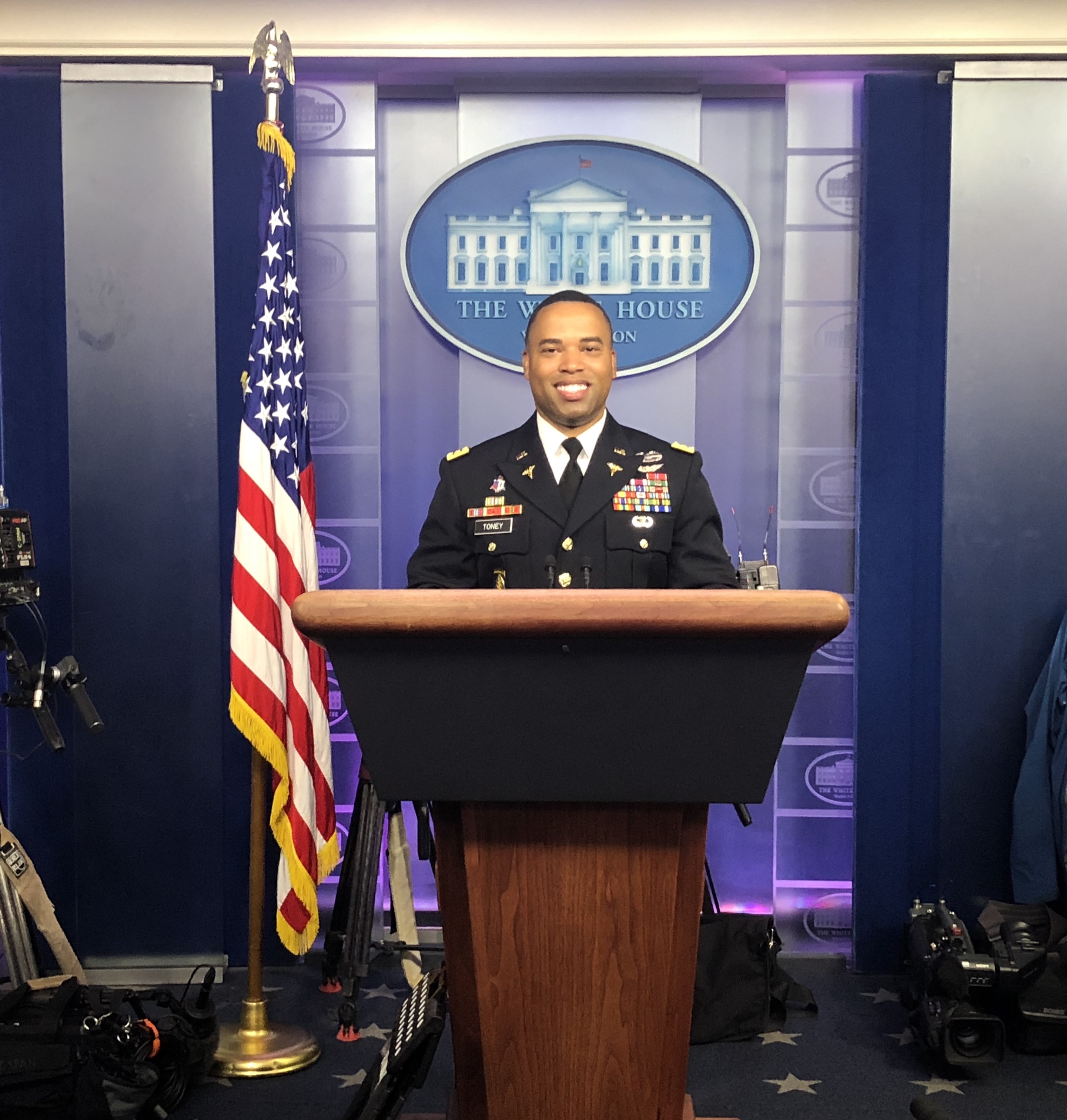Where did you grow up and how has your background influenced you today?
Having grown up in an underserved neighborhood in Atlanta and struggling to find my footing in school, I jumped at the opportunity to join the Army after receiving my high school diploma at 17.
The Army enrolled me in several programs for language training, and eventually, to become a medic and mental health specialist. Over the years, I completed three tours in Afghanistan, where I embedded myself in the local community as a member of special operations and attended to battlefield trauma. Witnessing extreme poverty among the people I cared for had a profound effect on my outlook on life, my commitment to public service, and the trajectory of my career.
Throughout my 21 years of service in the Army, I pursued various avenues for professional and academic growth. I completed Physician Assistant training and had the privilege of serving as a White House Medical Officer during the Covid-19 pandemic, working under two different administrations. My career has taken me to places like Hawaii, Germany, and South Korea, and I’ve been able to share my expertise with the Department of Veterans Affairs, the Department of Homeland Security, and as an adjunct professor at the University of Lynchburg. Leveraging the diverse experiences of my life abroad and in Atlanta, as well as the assets gained from my military service, I have strived to create opportunities that benefit others and contribute positively to the communities I serve.
"By all objective measures, I probably shouldn’t be here—shouldn’t have made it past 17. I’ve gone from feeling like I was not a part of the American dream to defending the American dream to representing America."
Bernard Toney Jr
MPH ’23
Tell us about your current professional role and how it excites you.
I recently accepted an appointment as a Foreign Service Medical Provider at the U.S. Department of State. In this role, I’ll be leading health unit operations, advising on population health matters, and working within local healthcare infrastructures to provide primary and preventive care.
By all objective measures, I probably shouldn’t be here—shouldn’t have made it past 17. I’ve gone from feeling like I was not a part of the American dream to defending the American dream to representing America. I’d like to thank the mentors who helped shape my vision, leaders who removed obstacles and provided resources, and my supportive family who motivate me every day.
Was there a standout course, professor, or organization from your time as a student that inspired your career path?
While I was working toward my Master’s of Public Health, Dr. Wendy Ellis, Assistant Professor and Director of both the Center for Community Resilience and the Institute for Racial, Ethnic and Socioeconomic Equity, challenged me to see things from a new perspective. I had to unlearn everything I had learned up until that point. It was empowering to recognize my family’s history in the history of this country; the conditions that informed my ancestry, and the environmental determinants that shaped my upbringing.
What piece of advice do you have for current Public Health students?
As Vice President of GW’s chapter of the Delta Omega Honorary Society in Public Health, I interact with a broad pool of students, faculty, and other alumni who are passionate and excited about the future of public health.
My advice is to remember that everything is public health and that you can apply the core values of public health no matter what position you’re in. For instance, my job has never exclusively been about delivering care. Rather, I seek interdisciplinary action and collaboration with people across different sectors in order to have the biggest impact!


